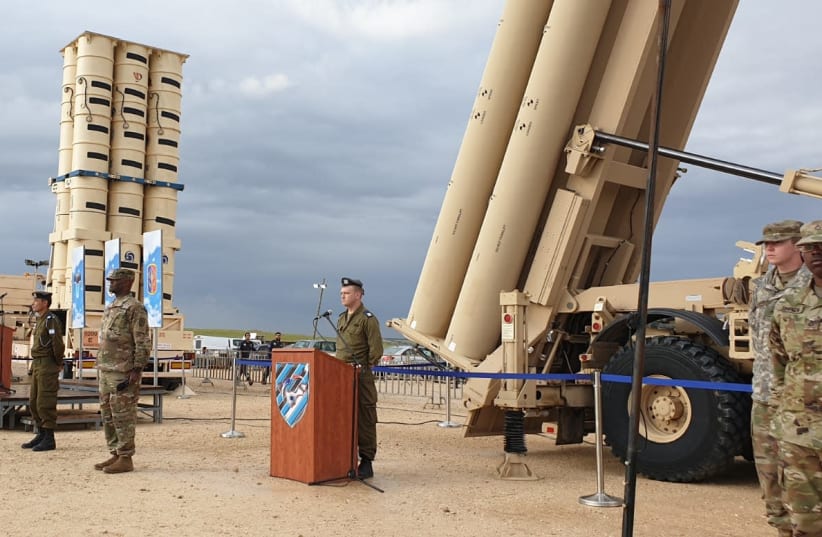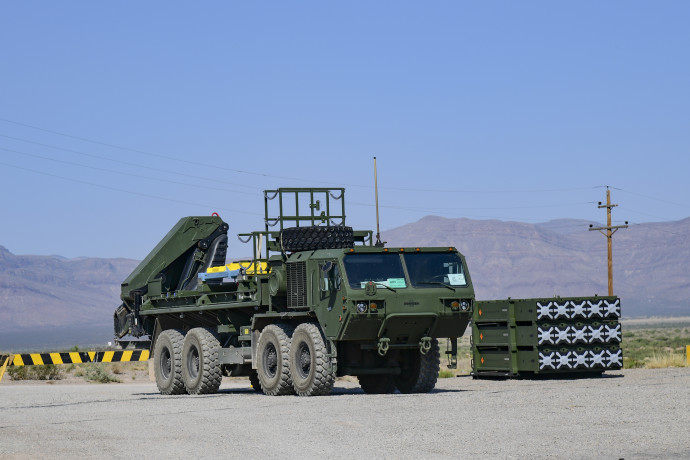A bipartisan group of 44 senators sent a letter to the leaders of the Senate Defense Appropriations Subcommittee, calling for $500 million to fully fund US-Israel cooperative missile defense programs in the Defense Appropriations bill for the fiscal year 2023.
Senators Kirsten Gillibrand (D-New York) and Mike Rounds (R-South Dakota) led the group.
“Israel’s missile defense system is made up of four operational layers: Iron Dome (short-range), David’s Sling (medium-range), Arrow 2 (longer range), and now Arrow 3 (very long range),” they explained.
“The US-Israeli cooperation has resulted in a system that can, and has, countered numerous missile threats from state and non-state adversaries in Gaza, Lebanon, Syria, Iran and elsewhere. This system provides Israel with the ability to protect lives at home and on the battlefield, keeping its citizens and soldiers out of harm’s way.”
They went on to write that in addition to contributing to ballistic missile defense, the funding will support crucial work on research, development and test activities to counter hostile unmanned aerial systems.
“As you begin work on the Fiscal Year (FY) 2023 Defense Appropriations bill, we write seeking $500 million for continued support for these programs in order to meet the United States’ and Israel’s national security needs,” they wrote.
“Another area of critical importance to both the United States and Israel is in the field of Unmanned Aircraft Systems (UAS), perhaps as importantly, counter-UAS,” they continued. “Iran and its proxies’ increased use and sales of UAS only heighten the importance of these systems."
"The collaborative defense program has created an important flow of data to support US service members in theater, US missile defense technology, and our strategic ally, Israel."
"Additionally, the programs support critical elements of the industrial base and important jobs in the United States through co-development and co-production agreements."
Future plans
“For FY 2023, in addition to ballistic missile defense, $500 mllion will continue critical work on research, development and test activities to counter hostile unmanned aerial systems,” the letter reads.
“Together, these programs confront the compelling challenges facing both Israel and the United States and represent the security-based and economic tenets of the enduring friendship of our nations.”
“This vital funding will help Israel save lives and defend itself, while also strengthening US national security, and furthering research and development. The US-Israel relationship is unshakable, and I’m proud to lead this strong group of bipartisan senators to ensure Israel has the resources needed to protect its people,” Sen. Gillibrand said.
"We have had a great deal of success in improving our missile defense systems working with Israel," Sen. Rounds stated.
We have had a great deal of success in improving our missile defense systems working with Israel
Senator Rounds
"The advancements we have been able to make in this cooperative effort will benefit our defense capabilities as well as those of our ally Israel. This missile defense system has also saved the lives of countless Israeli and Palestinian citizens living in Israel. It is important that we continue to authorize and fund these systems.”

